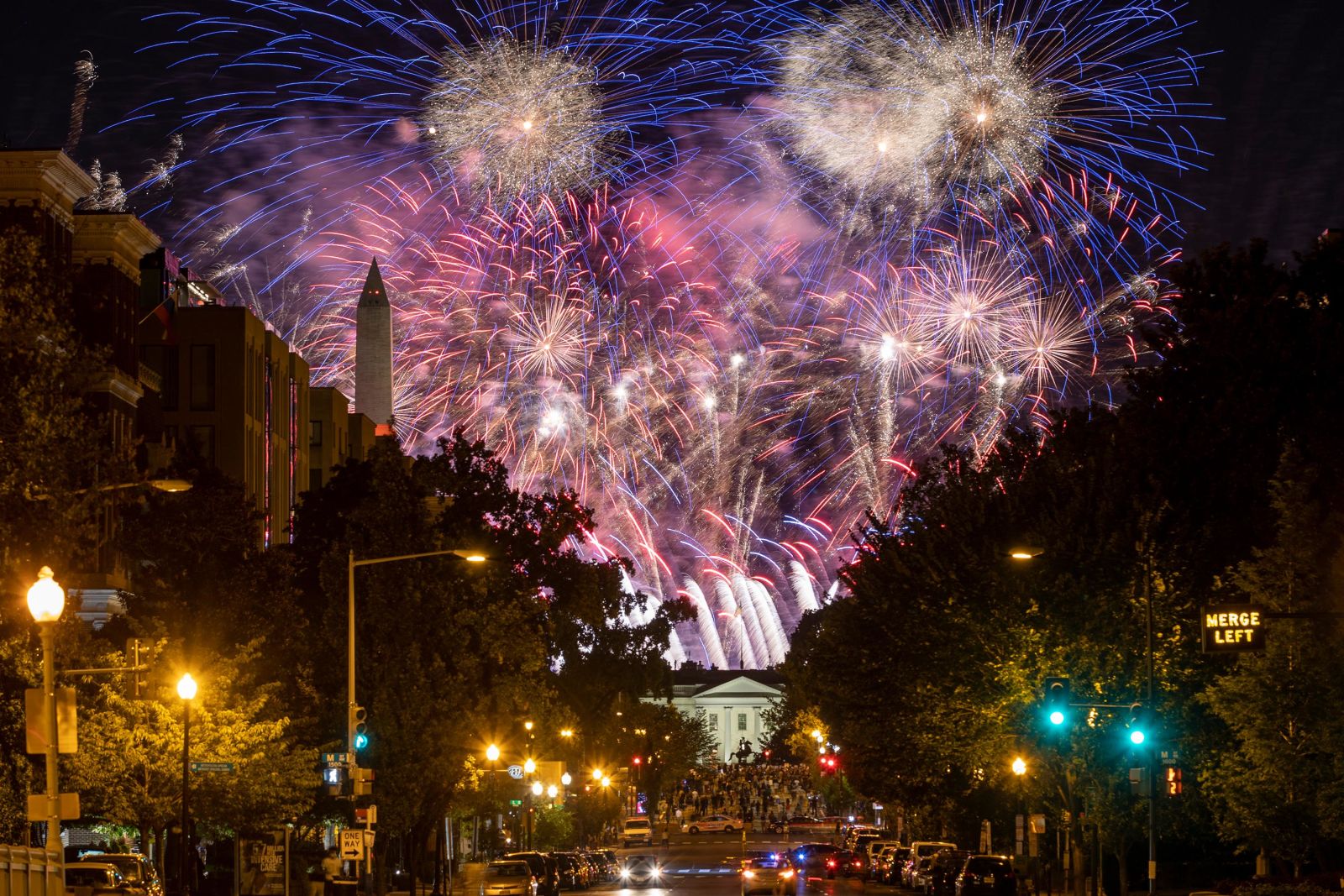For a moment, TV people can pause for breath. It’s post-conventions rehab time.
The two parties have had their virtual gatherings. (The Republican finale is shown here.) People can worry about something else now … briefly. Coming soon are:
– Town halls, with candidates talking to undecided voters. ABC has set Donald Trump for Sept. 15; it has invited Joe Biden for a separate night.
– Debates. They’re set for Sept. 29, Oct. 15 and Oct. 22; the vice-presidential debate is Oct. 7.
– Ongoing news coverage, including a key special every four years: “The Choice,” a simultaneous profile of both candidates, debuts Sept. 22 on PBS’ “Frontline.”.
All of that is a big leap from the calculated, controlled conventions. “He reads a teleprompter well,” Rick Santorum said of Biden, but a debate with Trump will be different. “He’s going to a knife fight with a guy with a bazooka.”
Santorum, a former Republican presidential candidate, was one of several CNN correspondents speaking to reporters Thursday. They agreed that both men do well with prepared comments, but …
“We know there’s a big difference between teleprompter Donald Trump and off-the-cuff or Twitter Donald Trump,” said David Chalian, the CNN political director.
CNN’s Mitch Landrieu – a Democrat and former New Orleans mayor – agreed. Even if he gave a fine convention speech Thursday, Landrieu said, “President Trump will be off-script by Saturday morning.”
As he was talking (late Thursday morning, New Orleans time), Landrieu’s attention was also on the fierce storm heading toward his city. That was a reminder of all the distractions going on.
As CNN’s Bakari Sellers (a former Democratic legislator in South Carolina) put it, Vice-President Mike Pence’s talk on Wednesday “wasn’t even one of the top three stories” in the news. People were talking about the storm … about the Kenosha, Wis., shooting … and about the basketball boycott.
Early figures show viewership was down for both parties. Biden’s speech drew about 22 million people and Trump’s drew about 20 million … compared to 30 million four years ago.
For CNN’s Amanda Carpenter – a former Republican speechwriter who comments often on Trump’s efforts to get female voters – that’s key. The Republican convention had ample appeals to women, she said, but “they’re just not watching.”
Then again, there may not have been many people ready to be swayed. “Does anyone know anyone who is ambivalent about Donald Trump?” asked CNN’s Scott Jennings, a frequent Republican campaigner and consultant.
Biden’s image “doesn’t seem fully formed,” said Dana Bash, CNN’s chief political corresponent. Still, Trump’s image may already leave people rigidly entrenched.
Michael Kirk, who produces the PBS “Choice” films, has heard that before. “Everybody says campaigns don’t really change the perceptions of 80, 90 percent of the people,” he told the Television Critics Association recently. “But it is that 10 percent that really matter.”
What also matters is the extra factor: You can’t just get people to prefer yout candidate; you have to have them be motivated enough to vote.
Four million people who voted in 2012 didn’t vote in 2016, “and a third of them are Black folks,” said Sellers, who is Black. The shortfall “isn’t the Republicans’ fault, it’s the Democrats’.”
To win this time, perhaps, Biden will need a fully formed image that energizes people. He’ll also need to step away from his teleprompter and face a verbal bazooka.
